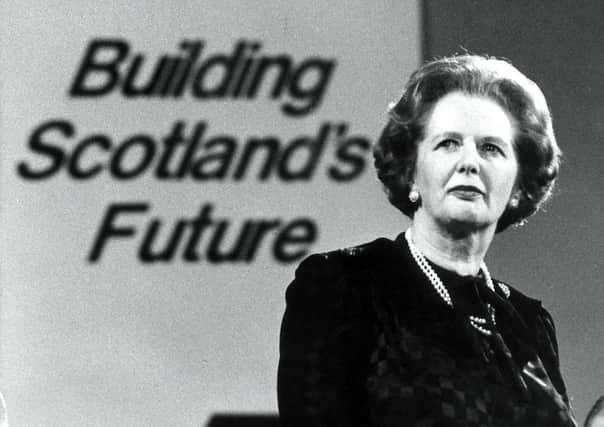Andrew Whitaker: Anti-Tory strategy may backfire


Of course the SNP’s white paper, as would be expected, extols independence as an end in itself throughout all 670 pages as the solution to every issue from childcare provision to defence. But the hard sell so far – and almost certainly for the remainder of the campaign – will be on the powers issue and the prospect of Tory rule from Westminster.
The Nationalists’ mantra is that any Scots backing more powers for Holyrood can only be sure further devolution will be delivered through a Yes vote.
Advertisement
Hide AdAdvertisement
Hide AdThere’s also the oft-repeated SNP argument of how the only way to avoid being governed by a right-wing government is to break away from Westminster and break the yoke of Tory dominance forever.
The SNP has self-evidently been hugely successful in winning over Labour voters at the 2007 and 2011 elections, when the nationalists were able to attract in large numbers Scots who had previously tended to vote Labour.
This campaign strategy has some chance of making inroads as the referendum draws nearer and Ed Miliband’s Labour Party enjoys only a relatively slim lead over the Tories ahead of the 2015 general election.
There is also somewhat of a chasm in the campaign from the No lobby and the UK government with a failure to spell out any real vision for Scotland within the UK and a better deal on devolution.
The SNP strategy seems to be based on an assumption that there’s no real majority appetite for independence, but that it might be possible to scare Scots into voting Yes by highlighting the risk of what many people view as more deeply unpleasant policies such as the bedroom tax.
But it’s a strategy with real risks for the SNP as Miliband, despite having much to do, has managed to score real points over the Tories with his plans for a freeze on energy bills and restrictions on bankers bonuses.
The UK Labour leader stands a good chance of at least emerging as the head of the biggest party at next year’s election and it’s worth remembering it’s now well over 20 years since the Tories last won outright at Westminster.
Perhaps the SNP strategy would have worked more effectively had the Tories been in power at Westminster with majorities of 100-plus, like those held by Margaret Thatcher in the 1980s, when she was able to impose policies such as the poll tax and privatisations on Scots, who had voted against her party.